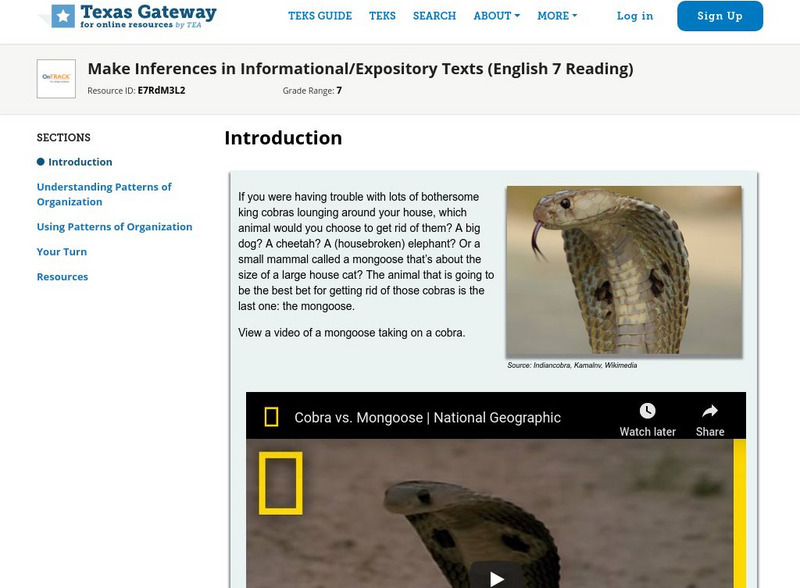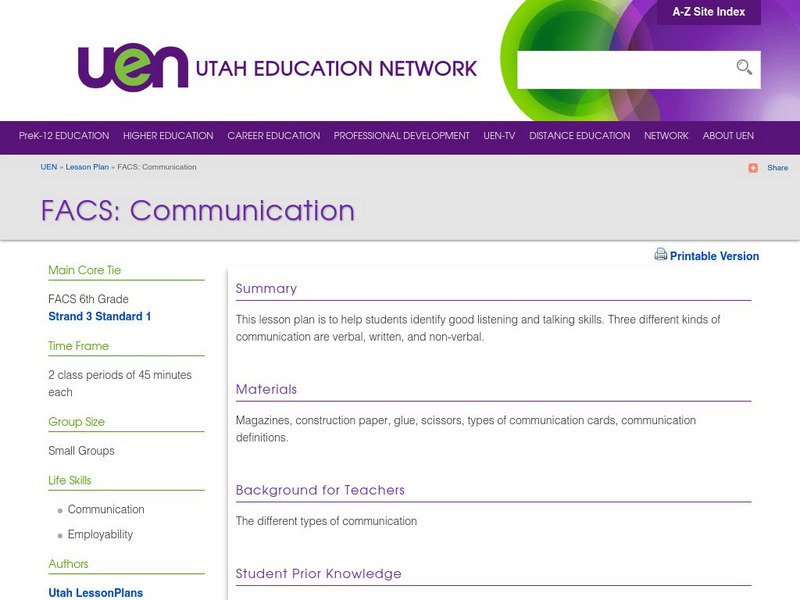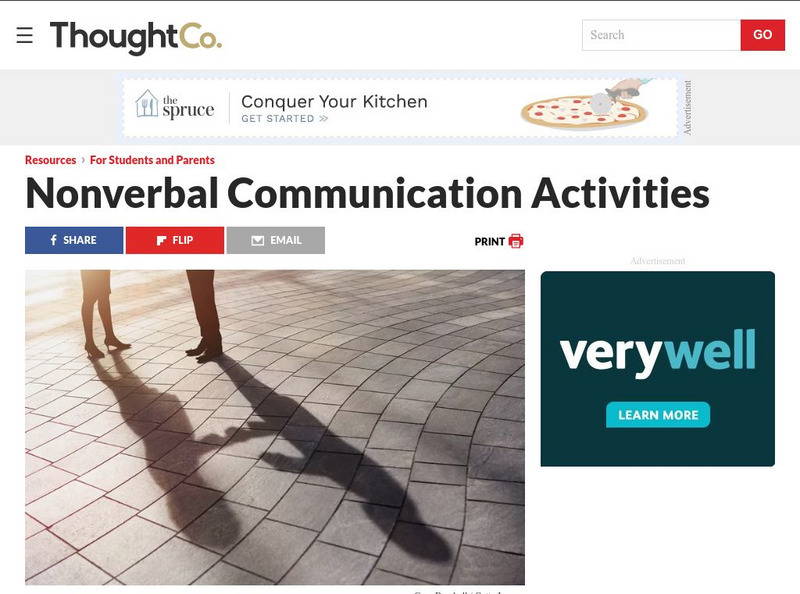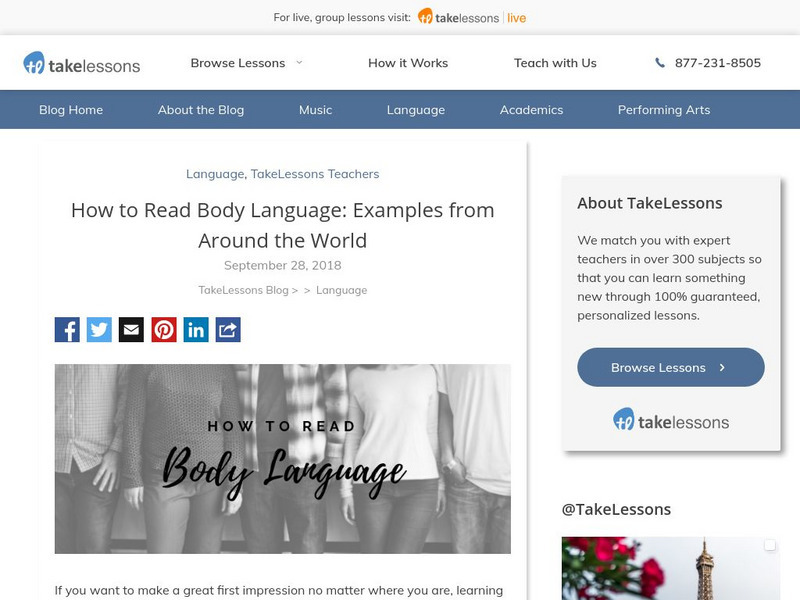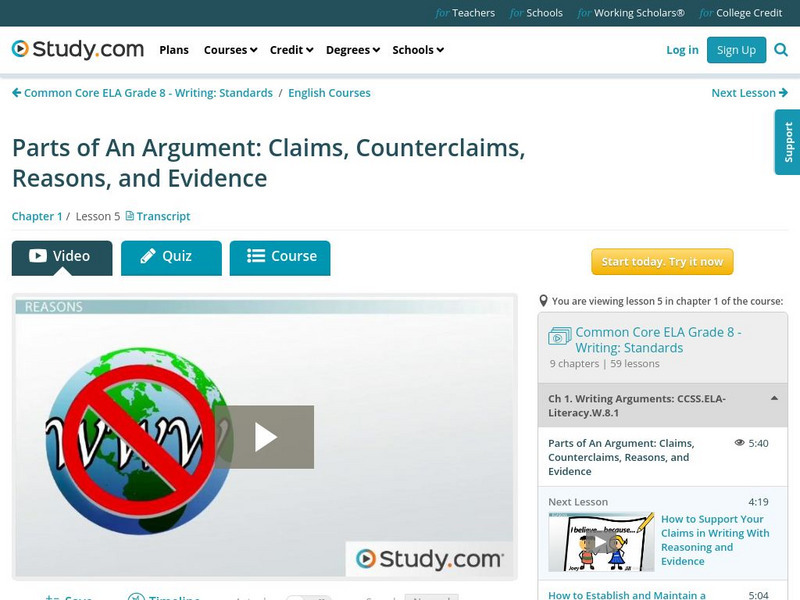Other
Critical Thinking: Basic Questions & Answers
An interesting interview with Richard Paul discussing what critical thinking means. There are many insights as to what critical thinking involves and how it should be used in the classroom.
Other
Analytic Technologies: Active Listening
Excellent article on reflective, or active, listening, a method used when trying to help the speaker deal with something. Includes a chart of choices made by the listener before giving a response.
Sophia Learning
Sophia: Elements of an Effective Argument
Discussion focuses on understanding the three academic language objectives that make an effective argument: understand the concept of a thesis statement, the significance of writing an argument with an audience in mind, and the...
Polk Brothers Foundation Center for Urban Education at DePaul University
De Paul University: Center for Urban Education: Evaluate the Strength of Evidence [Pdf]
This resource provides a downloadable worksheet that will assist students after they read a piece of nonfiction. Students will answer guided questions to help them determine the strength of evidence used when supporting a claim....
Polk Brothers Foundation Center for Urban Education at DePaul University
Depaul University: Center for Urban Education: Organize an Argument [Pdf]
This site provides a nonfiction graphic organizer that will help students organize an argument.
Grammarly
Grammarly Handbook: Logic in Argumentative Writing
An explanation and examples of several different types of logic that can be used in argumentative writing.
Texas Education Agency
Texas Gateway: Make Inferences in Informational/expository Texts
[Accessible by TX Educators. Free Registration/Login Required] Use different organizational patterns as guides for summarizing and forming an overview of different kinds of expository text while distinguishing factual claims from...
Other
Puzz.com's 1001 Best Puzzles: Brain Training Games: Analogies
These four self-scoring analogy tests include a number of open ended analogies to challenge your logic skills.
Utah Education Network
Uen: Facs: Communication
This lesson plan is to help students identify good listening and talking skills. The different kinds of communication are verbal, written, and non-verbal. Included in this instructional activity are activities for each type of...
Lumen Learning
Lumen: Boundless Communications: Understanding Bias in Language
This lesson plan focuses on bias in language such as gender and cultural bias and how to avoid them in public speaking. CCSS.ELA-Literacy.WHST.6-8.2.e
Other
Bbc: H2g2 Circular Reasoning
Excellent definition and discussion of the term "Circular Reasoning," including a couple of very clear examples.
Quizlet
Quizlet: Elements of an Argument Test
Argument essay terms are included on this test over the following words: argument, claim, support, reasons, evidence, and counterargument. Six multiple choice questions are provided on this assessment.
Quizlet
Quizlet: Elements of an Argument Match
Argument terms are included in this review "Match" game. Questions are provided for the following words in this review exercise. for the following words: argument, claim, support, reasons, evidence, and counterargument.
Quizlet
Quizlet: Elements of an Argument Learn
In this activity, students will type the argument term associated with each definition or example. When given a definition or an example, students will practice identifying the following terms: argument, claim, support, reasons,...
Quizlet
Quizlet: Elements of an Argument Flashcards
Argument essay terms are included in this review exercise. Interactive vocabulary flashcards are provided for the following words: argument, claim, support, reasons, evidence, and counterargument.
Curated OER
Mc Graw Hill: Integration of Knowledge and Ideas: Think Critically
Learn how to think critically by distinguishing between facts, opinions, and reasoned judgments. Practice exercise included.
Better Lesson
Better Lesson: Analyzing Literary Devices With a Written Discussion
Students will be able to analyze literary devices by participating in a written discussion. This activity is called "Pass the Paper". Students pass a sheet of paper around the room, with each student adding on. It's just a different way...
BBC
Bbc Bitesize: Listening to Others and Building on Arguments
This resource explains how to listen carefully to someone to identify the points they are trying to make and how to use those points to add additional information to the discussion. Includes sentence starters to help frame what you want...
CK-12 Foundation
Ck 12: 4.1: Persuasive Essay
[Free Registration/Login may be required to access all resource tools.] Learn to write a persuasive essay by organizing arguments in a logical order, providing appropriate supporting details, clarifying main arguments, and identifying...
CommonLit
Common Lit: Text Sets: Argument, Bias, and Persuasion
Collection of 43 Grade-Leveled texts (6-12)on the topic Argument, Bias, and Persuasion. Have students track arguments through texts as they examine logical reasoning, bias, and persuasive techniques such as emotional appeals, character...
ThoughtCo
Thought Co.: Nonverbal Communication Activities
It's important to be aware of nonverbal communication, so we can avoid sending and receiving unintentional messages through our expressions and body movements. These exercises are designed to help you understand how much information we...
Other
Take Lessons: How to Read Body Language: Examples From Around the World
This resource provides several examples of different meanings of various types of body language.
Other
Study.com: Parts of an Argument: Claims, Counterclaims, Reasons, and Evidence
This lesson explains the parts of an argument essay. [To unlock this lesson you must be a Study.com Member.]
McGraw Hill
Read: Does Technology Make Us Lazy?
Compare these two passages for some interesting ideas about how technology affects our lives. The questions that follow ask you to identify the main idea from either direct statement or inference.





![De Paul University: Center for Urban Education: Evaluate the Strength of Evidence [Pdf] Activity De Paul University: Center for Urban Education: Evaluate the Strength of Evidence [Pdf] Activity](https://d15y2dacu3jp90.cloudfront.net/images/attachment_defaults/resource/large/FPO-knovation.png)
